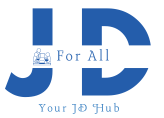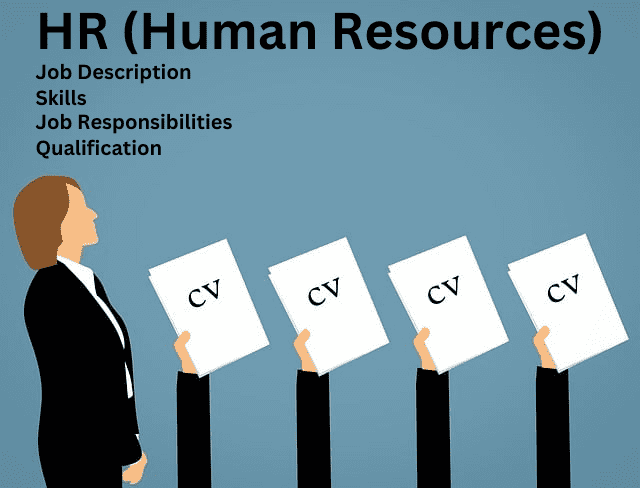Introduction
In the dynamic landscape of modern business, the role of Human Resources (HR) has evolved into a crucial component that drives organizational success. To understand and excel in this field, one must grasp the essence of HR job descriptions, acquire the necessary skills, embrace job responsibilities, and meet specific qualifications. This guide dives deep into the realm of HR, providing insights, information, and advice to aspiring HR professionals and those seeking to understand this pivotal function better.
The foundation of every organization, HR is in charge of overseeing the human resources component of the company’s operations. It involves a number of activities, including hiring, interacting with employees, developing talent, and more. Let’s explore the nuances of HR job descriptions, necessary skills, job responsibilities, and credentials in order to start a successful HR journey.
HR Job Description
An HR professional’s job description is multifaceted and revolves around fostering a healthy work environment, ensuring compliance, and optimizing employee performance. Key aspects of an HR job description include:
Recruitment and Onboarding
In this position, HR specialists design alluring job advertisements, hold interviews, and oversee the smooth onboarding procedure. They are crucial in integrating new hires into the corporate culture.
Employee Relations and Conflict Resolution
Intermediaries between employees and management, HR specialists handle disputes, address complaints, and preserve a positive work environment.
Training and Development
From identifying training needs to organizing workshops, HR professionals nurture employee growth, enhancing skills and competencies.
Benefits Administration
Managing employee benefits, such as healthcare and retirement plans, falls within the HR domain, ensuring employee well-being and satisfaction.
HR Skills
Mastering HR job responsibilities requires a diverse skill set that enables effective management of people and processes. Some essential HR skills include:
Communication and Interpersonal Skills
Collaboration and understanding are fostered by transparent communication. Effective policy, change, and expectation communication is the responsibility of HR professionals.
Problem-Solving and Decision-Making
Handling employee issues demands adept problem-solving skills, often in high-pressure situations. Sound decision-making ensures fairness and equity.
Organizational and Multitasking Abilities
HR practitioners balance many activities at once, from hiring to employee engagement programmes. Organizational abilities are crucial.
Empathy and Emotional Intelligence
Understanding employees’ emotions and needs creates a supportive environment, leading to higher morale and productivity.
Conflict Resolution and Mediation
Navigating conflicts requires patience and tact. HR professionals mediate disputes, finding solutions that align with company policies.
HR Job Responsibilities
HR responsibilities extend beyond administrative tasks; they play a pivotal role in shaping organizational culture and achieving strategic goals.
Developing HR Policies and Procedures
Crafting comprehensive HR policies ensures consistent practices and compliance with laws and regulations.
Performance Management and Appraisals
HR professionals facilitate performance evaluations, providing constructive feedback and setting development goals.
Diversity and Inclusion Initiatives
Promoting diversity creates a rich and innovative work environment. HR drives initiatives to ensure inclusivity and representation.
Employee Engagement and Wellness Programs
Boosting employee morale and well-being is crucial. HR organizes engagement activities and wellness programs to foster a positive workplace.
Data-Driven Insights
Leveraging data, HR professionals analyze trends, helping management make informed decisions regarding workforce planning and resource allocation.
HR Qualifications
To succeed in HR, certain qualifications and educational backgrounds are beneficial.
Educational Background
While not always mandatory, a degree in Human Resources, Business Administration, or a related field provides a strong foundation.
Relevant Certifications
Credibility is increased when knowledge is validated by credentials like PHR (Professional in Human Resources) or SHRM-CP (Society for Human Resource Management Certified Professional).
Interpersonal Skills
Degrees aside, strong interpersonal skills, emotional intelligence, and problem-solving abilities are crucial for HR professionals.
Industry Knowledge
Understanding industry trends and regulations equips HR professionals to navigate challenges effectively.
FAQs
Q1. What Does an HR Job Entail?
A1. An HR job involves various responsibilities, including recruitment, employee relations, training, and benefits administration, contributing to a well-functioning organization.
Q2. How Can I Develop Strong Interpersonal Skills?
A2. Developing interpersonal skills requires active listening, empathy, and continuous practice. Engaging in team activities and seeking feedback can enhance these skills.
Q3. Are Certifications Necessary for an HR Career?
A3. While not mandatory, certifications like SHRM-CP or PHR can significantly enhance your HR career prospects by showcasing expertise and dedication.
Q4. What’s the Role of HR in Company Culture?
A4. HR plays a pivotal role in shaping company culture by implementing diversity initiatives, employee engagement programs, and fostering a positive work environment.
Q5. How Do I Stay Updated with HR Trends?
A5. Attending seminars, workshops, and webinars, and following reputable HR publications and online resources can help you stay informed about the latest industry trends.
Q6. How Can I Pursue a Career in HR without a Relevant Degree?
A6.While a relevant degree is beneficial, gaining relevant certifications, acquiring experience through internships, and showcasing strong interpersonal skills can help you enter the HR field.
Conclusion
Starting a career in human resources necessitates a variety of abilities, responsibilities, and credentials. By supporting development, comprehension, and cooperation among employees and organizational success, you, as an HR professional, become a bridge. Whether you’re seeking to enter the HR domain or enhance your existing skills, this guide has provided insights to help you navigate the dynamic landscape of HR.
Also Read
Accountant Job Description, Skills, Job Responsibilities, and Qualification
DevOps Engineer Job Description, Skills, Job Responsibilities, and Qualification
Machine Learning Engineer Job Description, Skills, Job Responsibilities, and Qualification
Graphic Designer Job Description, Skills, Job Responsibilities, and Qualification
Java Developer Job Description, Skills, Job Responsibilities, and Qualification


1 thought on “HR Job Description, Skills, Job Responsibilities, and Qualification”